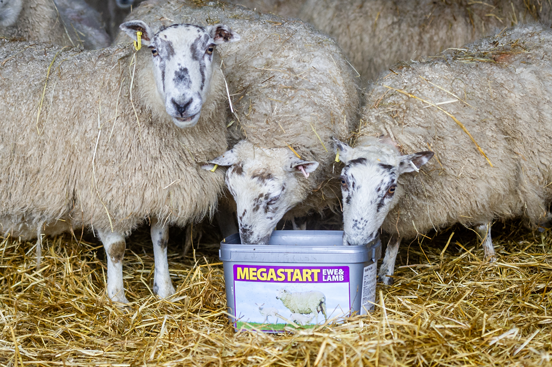Whether it is beef, sheep or dairy the success of a breeding enterprise is measured by the number of live offspring successfully reared – no pregnancy means no calf, no lamb and no milk. Getting an animal pregnant is only the start of the journey towards a profitable livestock enterprise.
Pregnancy can be split into three main phases early, mid and late pregnancy. Management, especially nutrition, during each phase has an impact on the breeding female and the foetus being carried, this impact can have lifetime effects.
Late pregnancy nutritional demands can vary
If pregnancy was the 100m hurdles then late pregnancy is the equivalent to the last 20m.
In the last eight weeks prior to birth there are significant changes in the nutritional demands from the growing foetus and the Mother’s ability to supply this growing demand is stretched. There are a whole host of variables that have an influence on the future of the unborn foetus, many of the demands if unmet will have lifetime negative impacts on the new-born animal.
Fading away in the last 20m of the race is no use. Thus correct nutrition in late pregnancy is not only essential to the health and vitality of the progeny at birth but affects the volume and quality of the colostrum, a ruminant has to acquire immunity through colostrum. Energy dense and containing essential growth factors plus the important immunoglobulins, an adequate volume colostrum has to be fed soon after birth since both the animal’s ability to absorb IgG and the quality of colostrum decrease rapidly within 24hours of birth.
Megastart lambing and calving supplements
The correct balance of minerals and vitamins fed in late pregnancy directly affect the quality of colostrum and that is where the MEGASTART range comes in. Four products (MEGASTART Ewe & Lamb, MEGASTART Pre-Calver, MEGASTART Dry Cow and MEGASTART Suckler) are specifically designed to be fed in the final 4 to 6 weeks pre-birth. All contain a high-grade MOS (mannanoligosaccharide) and a specific mineral/trace element pack. MEGASTART is research proven and known to increase colostrum volume in cows by 35% and increase IgG in ewes by 15.2% grammes per litre.

